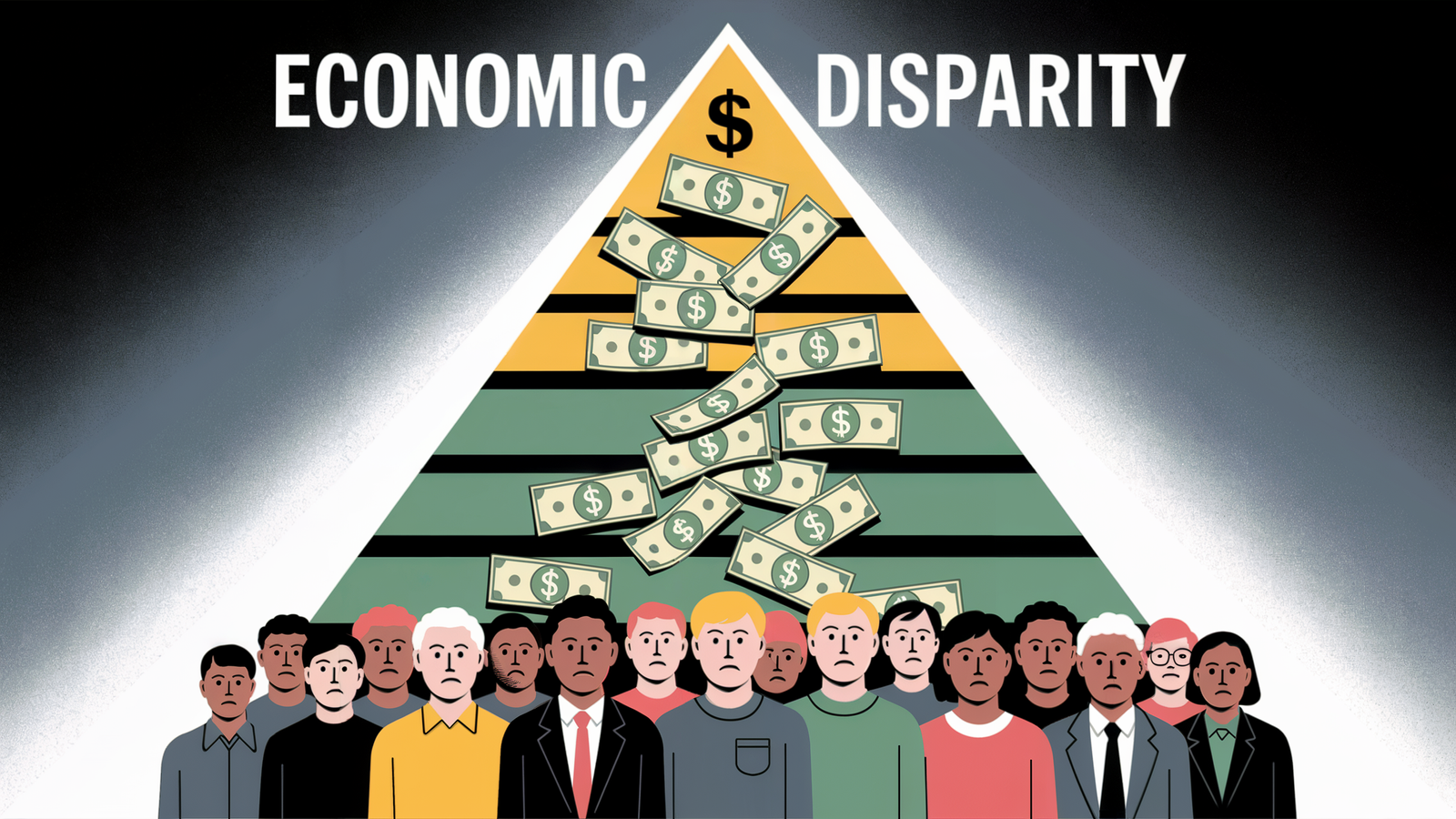Best Ways to Identify Pyramid Schemes in 2025
1. Introduction
Welcome to the Best Ways to Identify Pyramid Schemes in 2025 article!
Pyramid schemes aren’t dead — they’ve just gotten smarter. In 2025, these scams are no longer run by sketchy guys handing out flyers in parking lots. Now, they show up in your Instagram DMs, on sleek websites, and in Zoom calls that feel more like motivational seminars than sales pitches. They’re disguised as “business opportunities,” “passive income streams,” or “next-generation communities,” but underneath the surface, they follow the same toxic blueprint that’s fooled millions before.
If you’ve ever felt pressured to “get in early,” recruit friends, or buy overpriced products just to stay “active,” you might’ve been closer to a pyramid scheme than you think.
In this guide, I’ll show you the clearest red flags to look out for, share hard-earned lessons from my own experience, and help you protect yourself — and others — from falling into the same trap.
Let’s break the pyramid. 🧠

2. My Experience: I Was in a Pyramid Scheme (Twice) 💬
This isn’t just theory for me — I’ve lived it.
A few years ago, I got involved in a company called Nature’s Own, which at the time was pitched to me as a health-focused business opportunity. It sounded legit. The products seemed natural, the community was energetic, and I truly believed I was getting in on something real. But over time, it became clear that everything revolved around recruiting, not selling. The products were just there to make it look like a business.
What really started to bother me was the pressure — especially the constant push to call everyone in my phone. Friends, family, even distant contacts. “Just share the opportunity,” they said. It felt invasive and uncomfortable, but I did it. Out of dozens of calls, I convinced one person to join. That was it.
Soon after, the whole company collapsed. But instead of accepting failure, some of the top people simply rebranded it into a new scheme called Seven International. Same leaders, same tactics, same hype — just a new name and logo slapped on the same broken model. I gave it another try (I wanted to believe), but that too eventually fell apart. No surprise there.
Looking back, I realize I was part of a system built on hope and hype, not value or sustainability. That experience opened my eyes, and it’s a big reason why I wrote this guide — so you don’t have to learn the hard way like I did.
3. Understand the Structure of a Pyramid Scheme 🔺
A pyramid scheme might sound like an outdated scam, but in 2025, it’s more subtle, more polished, and often disguised as a legitimate “business opportunity.” To recognize it, you need to understand how it’s structured — and why it’s inherently flawed.
At its core, a pyramid scheme isn’t built around selling valuable products or services; it’s built around people. Each participant is encouraged to recruit others, not to serve customers. The real profits come from getting more people into the system, not from offering something people genuinely want to buy. This means that your success depends entirely on pulling others in, and their success depends on doing the same — a cycle that benefits only those at the very top.
The structure grows rapidly at first, like a triangle expanding downward, but eventually collapses when it becomes impossible to find enough new recruits. Legitimate businesses can survive without constant expansion; pyramid schemes cannot. That’s the key difference.
If you find that the main focus of a program is recruiting others instead of promoting a real product, you’re likely looking at a modern pyramid scheme. 🚨
4. Watch for Recruitment-Based Earnings 🧿
One of the clearest signs you’re dealing with a pyramid scheme is when your income — and everyone else’s — depends almost entirely on how many new people you can bring into the system. If the business model rewards you more for signing up others than for selling a product to real customers, that’s a major warning flag.
In legitimate businesses, your earnings are tied to value: you offer something useful, people pay for it, and you’re compensated based on your sales performance. But in pyramid-style models, the product often fades into the background. What really matters is how fast you can “build your team,” “grow your downline,” or “duplicate the system.” These are just coded ways of saying, “recruit more people, or you won’t get paid.”
Even worse, many of these programs dangle bonuses, rank advancements, and commissions that are only unlocked when you hit recruitment milestones — not sales goals. You might be told you’re running your own business, but if you stop recruiting, the income stops too. That’s not entrepreneurship. That’s dependency. 🚫
5. Examine the Product or Service 🧪
As you will see in this”Best Ways to Identify Pyramid Schemes in 2025″ article, one of the easiest ways to spot a pyramid scheme is to take a hard look at the product — assuming there is one at all. In many cases, the so-called “product” is just a cover, a thin layer of legitimacy meant to hide the real business model, which is based entirely on recruitment.
Ask yourself this: Would anyone buy the product if there were no income opportunity attached to it? If the answer is no, you’re likely not looking at a real business — you’re looking at a cleverly packaged system built to lure in hopeful recruits with promises of easy money.
Real products solve real problems. They’re priced competitively, provide value to customers, and can be sold to anyone — not just people looking to join a program. But in pyramid-style models, the product is often overpriced, underwhelming, or strangely difficult to find detailed information about. Sometimes it’s a supplement with vague health claims, a digital membership with unclear benefits, or a generic service that no one would ever seek out on their own.
If the product exists only to satisfy legal requirements, and the real energy is being poured into growing your “team” rather than building a loyal customer base, that’s a strong indication you’re dealing with a pyramid in disguise. 🧱
6. Beware of Too-Good-to-Be-True Income Claims 💸
If the opportunity promises effortless income, overnight success, or “financial freedom” with minimal work, it’s time to take a step back. Real businesses take time to grow, require effort, and come with risks — anyone claiming otherwise is likely trying to sell you an illusion.
Pyramid schemes often rely on emotional hooks. They flash images of luxury cars, beach vacations, and dream homes, claiming that you too can have it all if you just “follow the system.” But what they don’t show you is that most participants make little to no money, and many lose what they put in. The flashy lifestyle you see online? Often rented, staged, or completely fabricated.
They may also use vague and hype-driven language like “ground floor opportunity,” “massive potential,” or “don’t miss your chance” to create urgency and FOMO (fear of missing out). These phrases are designed to bypass your critical thinking and push you into signing up without asking too many questions.
When someone focuses more on painting a fantasy than showing you a real, sustainable business model — with transparency, numbers, and real customer value — it’s a red flag you shouldn’t ignore. 🚨
7. Lack of Transparency 🕵️♂️
Legitimate companies don’t hide information — they present it clearly, confidently, and in detail. But when you’re dealing with a pyramid scheme, the more you ask, the less you seem to get. Everything starts to feel vague, confusing, or oddly secretive, as if you’re not meant to fully understand how things work until you’ve already joined.
If the compensation plan is buried in layers of jargon, if no one can clearly explain how you make money, or if you’re constantly told “just trust the system,” that’s a major red flag. You should never have to guess how a business operates, especially if you’re being asked to invest your time, energy, or money into it.
It’s also common for these schemes to use buzzwords and soft language to distract from reality — terms like “mentorship,” “community,” or “partnership” are thrown around without ever being clearly defined. Ask direct questions: What are the exact costs? How is commission calculated? What happens if I want to quit? If you can’t get straight answers, something isn’t right.
A real opportunity is transparent from day one. Anything less should make you pause — or walk away. 🚪
8. High Upfront Costs or Monthly Minimums 💳
One of the most common warning signs of a pyramid scheme is the presence of high upfront fees or ongoing purchase requirements that don’t seem to make business sense. If you’re expected to “invest” a large sum just to get started — often in the form of a starter kit, digital package, or membership fee — you should immediately question what you’re actually paying for.
In legitimate business models, costs are tied to tangible things: tools, training, or inventory you can use or resell. But in pyramid-style systems, the real purpose of the upfront cost is to create revenue for those above you. You’re not buying a product — you’re buying into the system. And often, these systems are designed to make your “investment” a requirement just to stay active.
Many also require monthly minimum purchases, which are cleverly disguised as a way to “stay qualified” for commissions or to “unlock higher ranks.” But think about that. If you have to keep buying the product to earn money — rather than selling it to real customers — then your income is artificially propped up, not truly earned. That’s not sustainable, and it’s not real entrepreneurship.
9. Fake Testimonials and High-Pressure Tactics 🎭
Pyramid schemes often rely on emotional manipulation to bring people in fast — before they have time to think critically. One of the most common tricks is the use of glowing testimonials that feel too perfect to be real. You’ll see videos and posts from people claiming they made thousands in their first month, that their life has completely changed, and that this is “the best decision they ever made.” But when you look closer, the stories are vague, the numbers are unverified, and everyone seems to be reading from the same script.
In 2025, it’s easier than ever to fake authority. AI-generated content, deepfake videos, and scripted social media posts can make a scam look like a thriving business. Just because someone shows a screenshot of their income or flashes a luxury car doesn’t mean it’s true. Ask yourself: Do they ever show proof of consistent product sales? Are they talking to actual customers — or just other recruits?
Alongside the fake success stories, you’ll often encounter high-pressure tactics. You’re told to “act now,” “lock in your spot,” or “don’t miss this once-in-a-lifetime opportunity.” Scarcity is manufactured to push you into a rushed decision. The more they pressure you to join quickly, the more likely it is they don’t want you asking too many questions.
A real opportunity doesn’t need to convince you with hype, flattery, or urgency. It speaks for itself. 🎯
10. No Refund Policy or Exit Option 🚪
One of the biggest red flags in any business opportunity is what happens when you want out — and pyramid schemes are notorious for making that process difficult, frustrating, or downright impossible. Before you ever sign up, you should be asking: What if I change my mind? Can I get my money back? What’s the cancellation policy?
Legitimate businesses are confident in what they offer and are usually happy to stand behind it with a clear, fair refund policy. Pyramid schemes, on the other hand, are structured to make quitting feel like failure — or worse, like betrayal. The culture often shames those who leave, calling them “quitters” or saying they “just didn’t try hard enough.” But in reality, the system was designed to make success nearly impossible for most people.
In many cases, once you’ve paid your fees, bought the starter kit, or made your monthly purchases, that money is gone. Refunds are rare, support is vague or unresponsive, and contracts may be filled with fine print that protects the company — not you. Even if you stop participating, you may continue getting billed or remain locked into monthly charges until you jump through multiple hoops to cancel.
A real business gives you the freedom to leave if it’s not the right fit. If you’re stuck, pressured, or financially trapped — it was never a business to begin with. 🚫
11. Look for Legal Warnings or Bad Reviews ⚖️
No matter how polished the website looks or how convincing the pitch may be, it’s always smart to check what others — especially authorities — are saying about the company. In many cases, pyramid schemes operate right on the edge of legality, and some are even under investigation while still actively recruiting new members.
Start by doing a simple Google search with the company name followed by words like “scam,” “pyramid scheme,” “lawsuit,” or “FTC warning.” If you find multiple complaints, negative reviews, or legal actions — even from a few years ago — don’t ignore them. These aren’t just “haters” or “people who gave up too soon,” as promoters might claim. They’re often real individuals who lost time, money, and trust.
You can also check official sites like the Federal Trade Commission (FTC) in the U.S., Consumer Protection authorities in your country, or Trustpilot for red flags. Many victims leave detailed warnings online hoping others won’t fall into the same trap.
And remember: even if the company hasn’t been shut down yet, that doesn’t mean it’s safe. Some pyramid schemes run for years before collapsing — and the collapse always hurts the people who joined last.
Taking ten minutes to research before joining can save you months or even years of financial and emotional stress. Your future is worth that effort. 🔍
12. Conclusion: Stay Smart, Stay Safe 🧠
Pyramid schemes have evolved. In 2025, they’re harder to spot, slicker in presentation, and more aggressive in recruitment — but at their core, they’re still the same old trap. They promise freedom, success, and community, but what they often deliver is pressure, loss, and disillusionment.
By learning how to recognize the signs — from overhyped income claims to vague products, forced monthly purchases, shady refund policies, and a focus on constant recruitment — you give yourself the power to walk away before it’s too late.
Always ask hard questions. Do your research. Trust your instincts. If something feels off, it probably is.
🔍 And if you come across a suspicious opportunity, report it to your local consumer protection agency or the FTC. You might just save someone else from falling into the same trap.
Protect your time, your money, and your peace of mind. You deserve better than a scheme built on empty promises. 🚫




